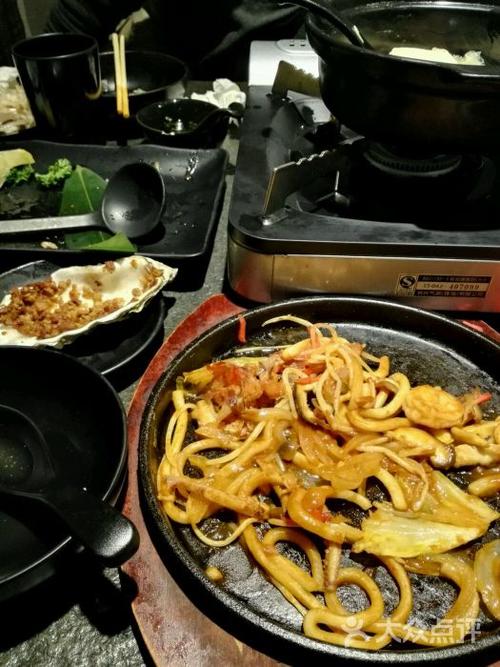Title: Choosing Between a MotherinLaw and a Professional Maternity Nurse
In the realm of postpartum care, the decision between relying on your motherinlaw (婆婆) or hiring a professional maternity nurse (月嫂) can be pivotal. Both options come with their own sets of advantages and challenges, and the choice depends on various factors such as cultural norms, family dynamics, and personal preferences. Let's delve into the considerations to help you make an informed decision:
Cultural and Familial Dynamics:
1.
Traditional Support vs. Professional Expertise:
婆婆 (Motherinlaw):
In many cultures, it's customary for the motherinlaw to take on the role of caregiving after childbirth. She brings traditional wisdom and familial support, often deeply invested in the wellbeing of both the mother and the newborn.
月嫂 (Maternity Nurse):
Hiring a professional maternity nurse provides specialized care focused solely on the mother and the newborn. Their expertise in postpartum recovery, newborn care, and breastfeeding can offer a structured approach to postnatal support.2.
Communication and Boundaries:
婆婆:
While having a close familial bond, communication and setting boundaries might be more challenging with a motherinlaw due to existing family dynamics and cultural expectations.
月嫂:
Professional maternity nurses offer a more structured caregiver relationship with clear boundaries, facilitating open communication and ensuring that your needs are met without familial complexities.Expertise and Support:
1.
Postpartum Care:
婆婆:
Experienced in traditional postpartum practices, a motherinlaw may provide holistic care encompassing dietary advice, herbal remedies, and emotional support rooted in cultural customs.
月嫂:
Maternity nurses undergo professional training, equipping them with knowledge in modern postpartum care techniques, including wound care, postnatal exercises, and psychological support tailored to individual needs.2.
Newborn Care:
婆婆:
With years of experience raising children, a motherinlaw can offer handson assistance in newborn care, sharing practical insights and traditional methods passed down through generations.
月嫂:
Maternity nurses specialize in newborn care, ensuring proper feeding, sleep routines, hygiene practices, and early developmental stimulation, bolstered by evidencebased approaches.Flexibility and Reliability:
1.
Availability and Commitment:
婆婆:
Depending on her other responsibilities and health, the availability of a motherinlaw might vary. While deeply invested, unexpected circumstances or conflicting priorities could affect her availability.
月嫂:
Hiring a professional provides the assurance of dedicated support during the contracted period, ensuring consistent care without interruptions or scheduling conflicts.
2.
Adaptability to Modern Lifestyles:
婆婆:
Traditional caregiving might not always align with modern lifestyles or preferences, leading to potential conflicts regarding childcare practices, household management, or personal space.
月嫂:
Maternity nurses adapt to modern family dynamics and preferences, accommodating diverse lifestyles, childcare philosophies, and household routines while prioritizing the mother's and baby's wellbeing.Cost Considerations:
1.
Financial Implications:
婆婆:
Typically, the support provided by a motherinlaw is a familial obligation without direct financial costs, but indirect expenses may arise from adjustments in household dynamics or lifestyle accommodations.
月嫂:
Hiring a maternity nurse involves financial expenses based on the duration of service, level of expertise, and additional requirements such as accommodation and transportation, which should be factored into the postnatal budget.Guidance for Decisionmaking:
1.
Evaluate Cultural Expectations and Family Dynamics:
Consider the significance of familial traditions, cultural norms, and the relationship dynamics with your motherinlaw in shaping your decision.
2.
Assess Personal Needs and Preferences:
Reflect on your postpartum recovery goals, childcare preferences, communication style, and the level of professional expertise required to meet your needs effectively.
3.
Open Communication and Boundaries:
Regardless of your choice, establish clear communication channels and boundaries to ensure mutual respect, understanding, and alignment with your expectations.
4.
Explore Hybrid Approaches:
Combining the strengths of both options by seeking professional guidance for specific needs while leveraging familial support can offer a balanced approach tailored to your unique circumstances.
Ultimately, the decision between relying on your motherinlaw or hiring a professional maternity nurse hinges on aligning cultural traditions, familial dynamics, personal preferences, and practical considerations to ensure optimal postpartum care for both you and your newborn.
With careful deliberation and open communication, you can navigate this decision with confidence, fostering a supportive environment conducive to your postnatal recovery and the wellbeing of your growing family.
Conclusion:
In the choice between a motherinlaw and a professional maternity nurse, there is no onesizefitsall solution. Both options bring valuable support and expertise to the postpartum journey, each with its own merits and considerations. By evaluating cultural norms, family dynamics, personal needs, and practicalities, you can make an informed decision that prioritizes your wellbeing and sets the stage for a positive postnatal experience.










